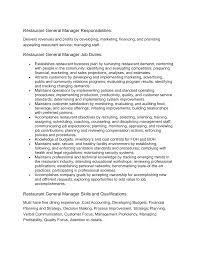
Amazon is searching for qualified Industrial Engineers to support their innovative and growing business. The Industrial Engineers ensure that Amazon's processes run smoothly and efficiently. They employ advanced analytical techniques to identify and correct flaws in production processes. They ensure that products manufactured by the company meet the highest quality standards.
Industrial engineers are responsible in designing, implementing, maintaining, and monitoring efficient systems that integrate workers, materials, machines, and machinery. They examine the manufacturing process and identify ways to reduce waste. Also, industrial engineers are responsible for the design of new equipment and processes in order to increase productivity.
They are also responsible to improve safety procedures in industrial facilities. They are skilled at solving problems using engineering principles and taking pride in making the company more efficient and valuable. There are many industries that industrial engineers can work in, including construction, transportation, energy, and manufacturing. The healthcare industry is also a common place for industrial engineers.

Industrial engineers work together with other engineers and experts to devise innovative solutions to complex issues. They work long hours on weekends, holidays, evenings, and other days. They are also people-oriented. They are highly creative and resourceful, and they strive to improve processes in order to reduce waste and make them more efficient.
Industrial engineers might also work in manufacturing companies or consulting firms. They might also work for transportation or logistics companies or within the operations department of companies. Companies that produce products or work on research projects are the most attractive to industrial engineers, depending on their industry.
Industrial engineers typically work on projects that are business-driven, and they can expect to be paid fairly for their work. A 40-hour work week is typical for industrial engineers. Some may even work overtime on weekends or holidays. Industrial engineers are resourceful and creative, and pride themselves on delivering innovative solutions to improve their company's efficiency.
Industrial engineers typically work in the healthcare, manufacturing, or transportation industries, and they may also work for consulting firms. They are often hired to help companies in all types of industries improve processes. They can also work for government organizations or research organizations. They might be interested also in the human resource side of a business.

Highly-trained industrial engineers can expect to make a decent living as a result of their hard work. Depending on the position, entry-level industrial engineers typically receive compensation between $63,000 and $85,000. The best career opportunities may require a master's degree. A master's degree in engineering can increase your chances of staying in this industry.
Amazon has many industrial engineers working on different projects. They are responsible for managing engineering deliverables, as well as defining and defining projects. They are also responsible for improving efficiency in Amazon's warehouses and fulfillment centers, and for ensuring that the company has the quickest route between fulfillment centers.
FAQ
What is the role of a logistics manager
Logistics managers are responsible for ensuring that all goods arrive in perfect condition and on time. This is done by using his/her experience and knowledge of the company's products. He/she must also ensure sufficient stock to meet the demand.
What are the four types of manufacturing?
Manufacturing refers the process of turning raw materials into useful products with machines and processes. It involves many different activities such as designing, building, testing, packaging, shipping, selling, servicing, etc.
What are the goods of logistics?
Logistics are the activities involved in moving goods from point A to point B.
These include all aspects related to transport such as packaging, loading and transporting, storing, transporting, unloading and warehousing inventory management, customer service. Distribution, returns, recycling are some of the options.
Logisticians ensure that the right product reaches the right place at the right time and under safe conditions. Logisticians help companies improve their supply chain efficiency by providing information about demand forecasts and stock levels, production schedules, as well as availability of raw materials.
They also keep track of shipments in transit, monitor quality standards, perform inventories and order replenishment, coordinate with suppliers and vendors, and provide support services for sales and marketing.
Statistics
- According to the United Nations Industrial Development Organization (UNIDO), China is the top manufacturer worldwide by 2019 output, producing 28.7% of the total global manufacturing output, followed by the United States, Japan, Germany, and India.[52][53] (en.wikipedia.org)
- Many factories witnessed a 30% increase in output due to the shift to electric motors. (en.wikipedia.org)
- (2:04) MTO is a production technique wherein products are customized according to customer specifications, and production only starts after an order is received. (oracle.com)
- [54][55] These are the top 50 countries by the total value of manufacturing output in US dollars for its noted year according to World Bank.[56] (en.wikipedia.org)
- It's estimated that 10.8% of the U.S. GDP in 2020 was contributed to manufacturing. (investopedia.com)
External Links
How To
How to Use Just-In-Time Production
Just-in-time is a way to cut costs and increase efficiency in business processes. This is where you have the right resources at the right time. This means that only what you use is charged to your account. Frederick Taylor first coined this term while working in the early 1900s as a foreman. He observed how workers were paid overtime if there were delays in their work. He then concluded that if he could ensure that workers had enough time to do their job before starting to work, this would improve productivity.
JIT is a way to plan ahead and make sure you don't waste any money. Look at your entire project, from start to end. Make sure you have enough resources in place to deal with any unexpected problems. If you anticipate that there might be problems, you'll have enough people and equipment to fix them. This way you won't be spending more on things that aren’t really needed.
There are many types of JIT methods.
-
Demand-driven: This type of JIT allows you to order the parts/materials required for your project on a regular basis. This will let you track the amount of material left over after you've used it. It will also allow you to predict how long it takes to produce more.
-
Inventory-based: You stock materials in advance to make your projects easier. This allows for you to anticipate how much you can sell.
-
Project-driven: This means that you have enough money to pay for your project. Knowing how much money you have available will help you purchase the correct amount of materials.
-
Resource-based JIT : This is probably the most popular type of JIT. This is where you assign resources based upon demand. You might assign more people to help with orders if there are many. You'll have fewer orders if you have fewer.
-
Cost-based: This is the same as resource-based except that you don't care how many people there are but how much each one of them costs.
-
Price-based: This is very similar to cost-based, except that instead of looking at how much each individual worker costs, you look at the overall price of the company.
-
Material-based: This approach is similar to cost-based. However, instead of looking at the total cost for the company, you look at how much you spend on average on raw materials.
-
Time-based: Another variation of resource-based JIT. Instead of focusing on the cost of each employee, you will focus on the time it takes to complete a project.
-
Quality-based JIT - This is another form of resource-based JIT. Instead of looking at the labor costs and time it takes to make a product, think about its quality.
-
Value-based JIT is the newest form of JIT. This is where you don't care about how the products perform or whether they meet customers' expectations. Instead, you're focused on how much value you add to the market.
-
Stock-based is an inventory-based system that measures the number of items produced at any given moment. This is used to increase production and minimize inventory.
-
Just-intime planning (JIT), is a combination JIT/sales chain management. It is the process of scheduling components' delivery as soon as they have been ordered. It's important as it reduces leadtimes and increases throughput.